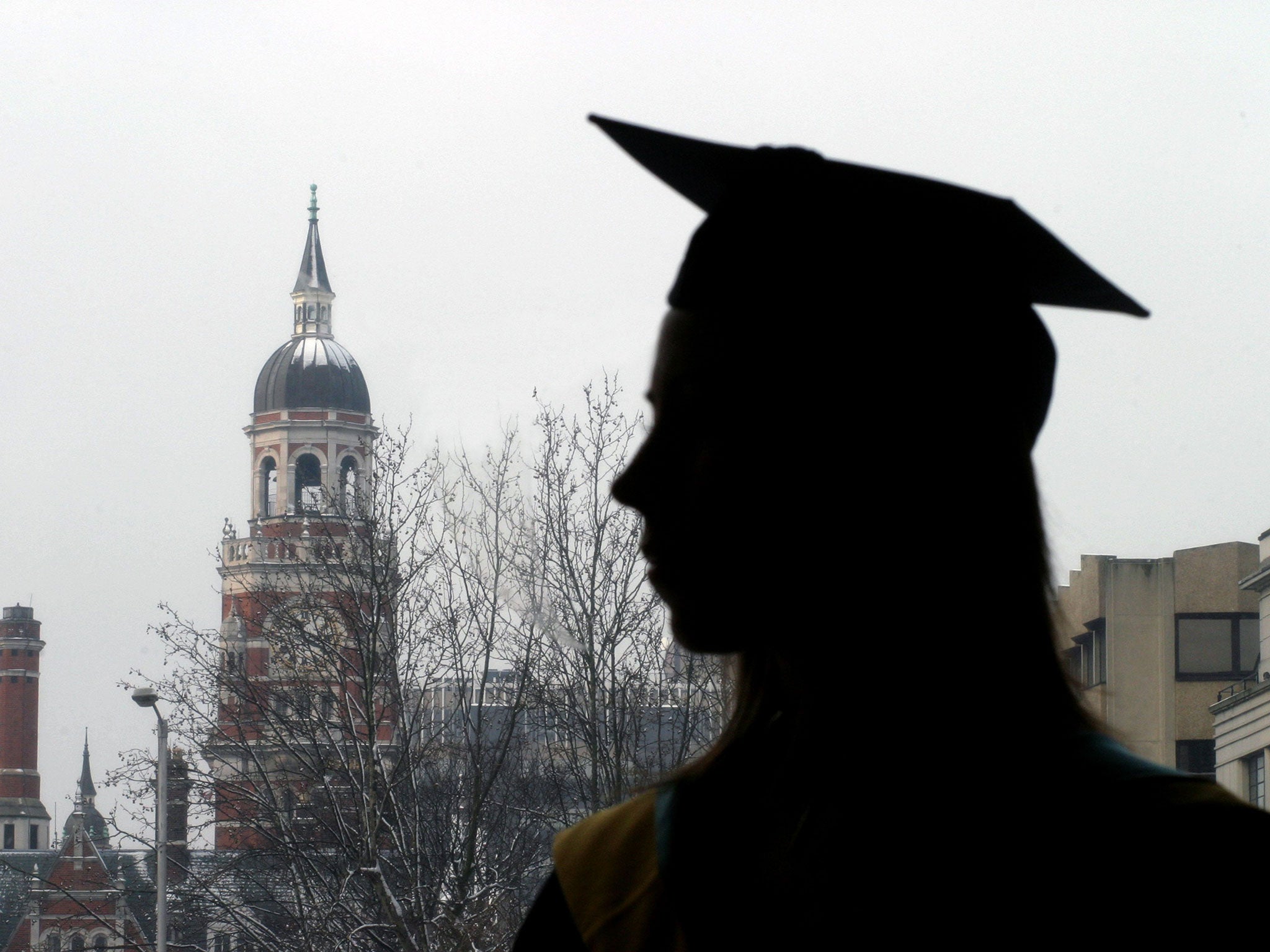Number of university students claiming special circumstances for mental health problems 'soars'
Treble the number of students at Cambridge University were granted special allowances such as extra time in exams as a result of mental health problems last year compared to five years ago

Your support helps us to tell the story
This election is still a dead heat, according to most polls. In a fight with such wafer-thin margins, we need reporters on the ground talking to the people Trump and Harris are courting. Your support allows us to keep sending journalists to the story.
The Independent is trusted by 27 million Americans from across the entire political spectrum every month. Unlike many other quality news outlets, we choose not to lock you out of our reporting and analysis with paywalls. But quality journalism must still be paid for.
Help us keep bring these critical stories to light. Your support makes all the difference.
The number of university students requiring special consideration in exams due to mental health problems has soared in the past five years, new figures suggest.
A Freedom of Information request from The Times found special arrangements were put in place for 218 Cambridge University students last year – nearly three times the figure for 2011.
At Imperial College the number this year was 111, compared to just 11 five years previously, and 167 undergraduate students sitting exams at Sunderland University were granted the same help (previously 96).
Special consideration is granted on a cases-by-case basis for students whose work might have suffered as a result of extenuating circumstances – for instance, a family death or ill health.
This might mean students receive help with extra time to complete papers, are given second attempts at sitting an exam or are allowed to submit essays rather than entering an exam hall.
Student union leaders have warned of a growing mental health crisis within young people in schools and universities, with financial and academic pressures known to be common aggravators for depression and anxiety.
Around 200,000 pupils in state secondary schools, equating to around 11 per cent, received extra time for exams last year, a figure that is expected to rise this summer.
The proportion is much higher for those in fee-paying independent schools, where almost 20 per cent of pupils (27,000) received special circumstances for a variety of reasons.
Some academics claim the ease with which students can take extra time is irresponsible, however, leading to ingenuine requests that mean the concept has become something of a “joke”.
Frank Furedi, a former professor of sociology at Kent University and author of What’s Happened to the University? warned that the practice was becoming too widespread.
“A few decades ago it was only granted in very rare circumstances but it has now become like a joke,” he told The Times. “It means there are different rules for different people and that some people who work hard and just get on with it are effectively penalised.”
“There are genuine cases but you have examples like ‘Mary broke up with her boyfriend and he shouted at her about it and now she’s traumatised and can’t concentrate on her exams’,” he added.
A survey undertaken by the National Union of Students in 2015 suggested as many as 78 per cent of students had experienced mental health issues during the previous year.
More recently, data from the Higher Education Statistics Agency (Hesa) revealed that a record number of students had dropped out of courses early during the 2014-15 academic year as a direct results of mental ill-health.
The latest figures show Edinburgh University allowed 16 students to opt-out of giving oral presentations as part of their assessment last year.
In 29 cases, adjustments for mental health conditions meant that the undergraduate “would not be penalised for an inability to contribute in class and should not be asked to do so”. Two students were allowed an “alternative” to sitting exams.
At Newcastle University a student who had been battling with a gambling addiction was granted another exam sitting.
The boundaries for special consideration remain at the university’s discretion, leaving some cases unclear and dividing department opinion.
Sheffield University guidelines for supporting students with mental health difficulties state that requests to defer examinations should be considered “where the student finds that they are unable to face the prospect of exams”.
A report from Unite Students and the higher Education Policy Institute published last week found only 37 per cent of university applicants with a mental health condition have declared it, or intend to declare it, with their prospective university.
Subscribe to Independent Premium to bookmark this article
Want to bookmark your favourite articles and stories to read or reference later? Start your Independent Premium subscription today.
Join our commenting forum
Join thought-provoking conversations, follow other Independent readers and see their replies
Comments